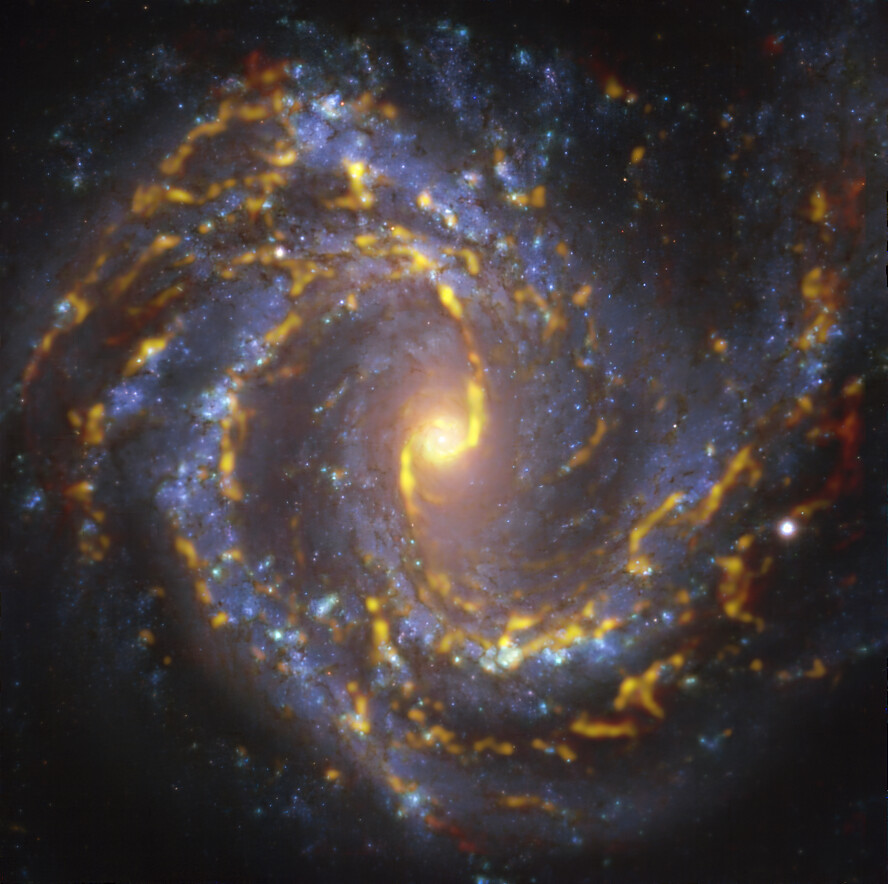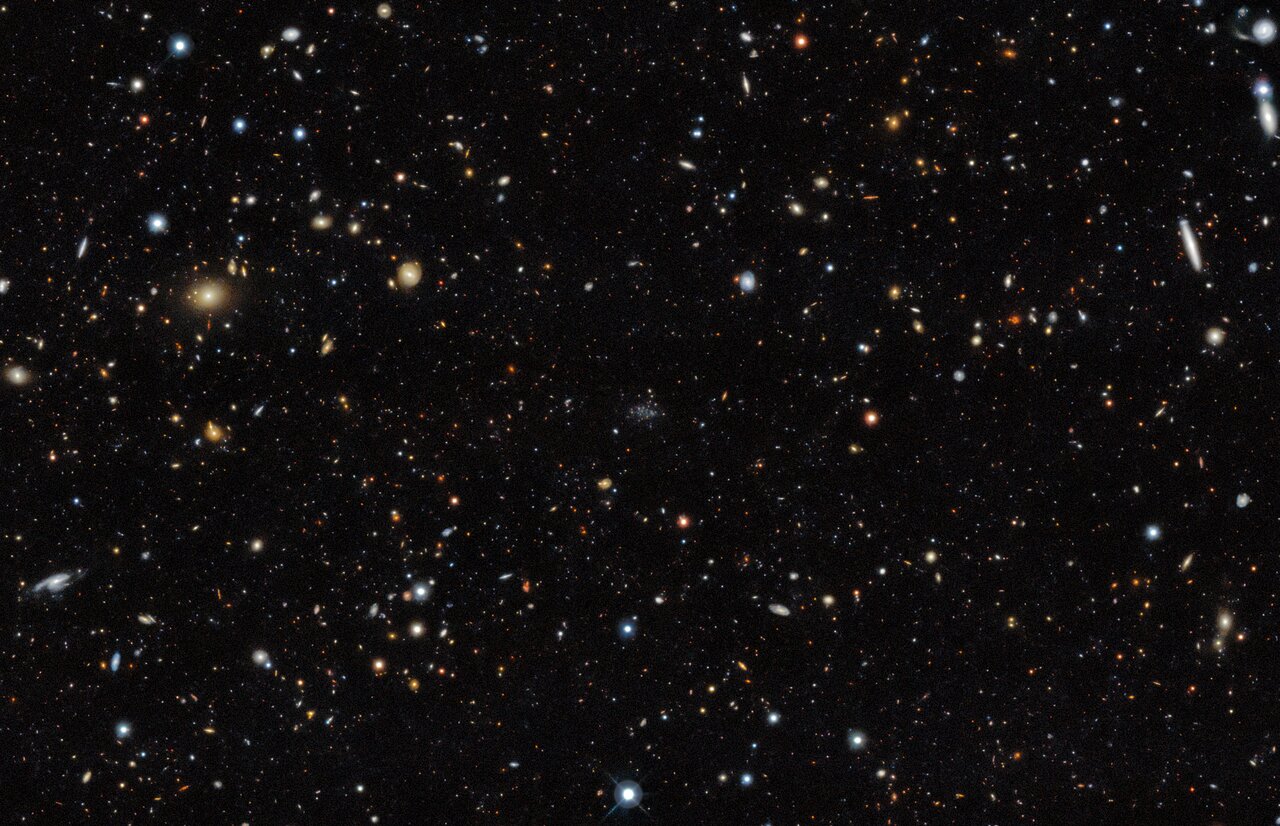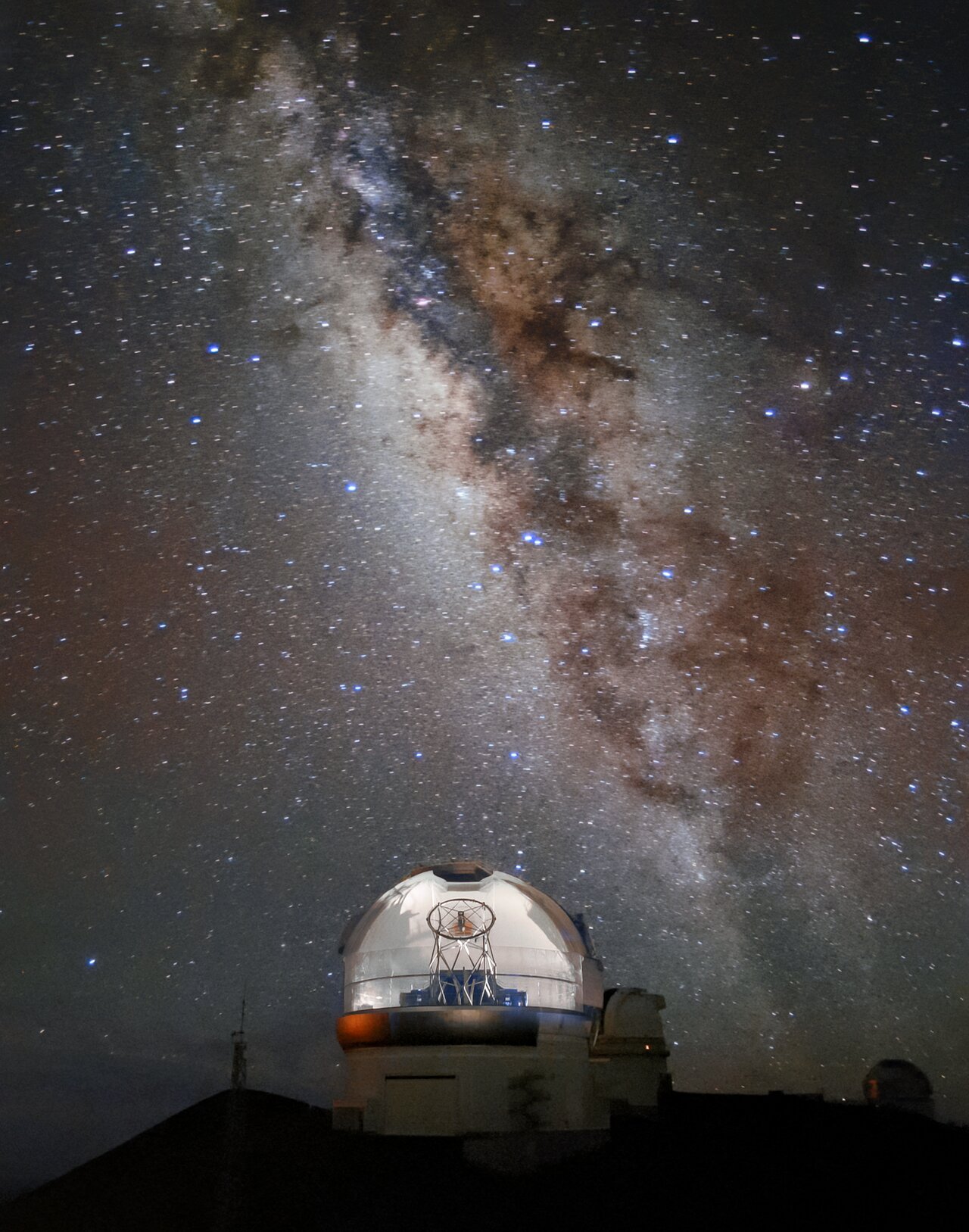Found Images: 2023 February
Found Images: 2023 February
Have you seen a great image or video somewhere that you think would make a great APOD? Nominate it for APOD! Please post as much information here as you have about the image/video with a link to any source(s) for it you know of here, and the editors will take a look.
When posting the image itself, please do not post anything larger than a thumbnail here; please honor the copyright holder's copyright.
Please keep hotlinked images under 500K.
Thank you!
<< Previously
Know the quiet place within your heart and touch the rainbow of possibility; be
alive to the gentle breeze of communication, and please stop being such a jerk. — Garrison Keillor
alive to the gentle breeze of communication, and please stop being such a jerk. — Garrison Keillor
-
starsurfer
- Stellar Cartographer
- Posts: 5330
- Joined: Thu Mar 15, 2012 7:25 pm
Re: Found Images: 2023 February
WHTZ 1
https://www.imagingdeepspace.com/whtz-14-593513.html
Copyright: Peter Goodhew and Sven Eklund A scientific paper can be read here.
https://www.imagingdeepspace.com/whtz-14-593513.html
Copyright: Peter Goodhew and Sven Eklund A scientific paper can be read here.
-
starsurfer
- Stellar Cartographer
- Posts: 5330
- Joined: Thu Mar 15, 2012 7:25 pm
Re: Found Images: 2023 February
Fr 2-2
https://www.starscapeimaging.com/FR2_2/FR2-2.html
Copyright: Jon Talbot Originally catalogued as a possible planetary nebula, this is now known to be an example of ionized ISM.
https://www.starscapeimaging.com/FR2_2/FR2-2.html
Copyright: Jon Talbot Originally catalogued as a possible planetary nebula, this is now known to be an example of ionized ISM.
-
starsurfer
- Stellar Cartographer
- Posts: 5330
- Joined: Thu Mar 15, 2012 7:25 pm
Re: Found Images: 2023 February
M33
https://www.astrobin.com/wfo4l0/
Copyright: Peter Maasewerd The true nature of Maa 2 is currently unknown. It might be a planetary nebula in the Milky Way or it might be a bubble type nebula that is part of M33.
https://www.astrobin.com/wfo4l0/
Copyright: Peter Maasewerd The true nature of Maa 2 is currently unknown. It might be a planetary nebula in the Milky Way or it might be a bubble type nebula that is part of M33.
-
starsurfer
- Stellar Cartographer
- Posts: 5330
- Joined: Thu Mar 15, 2012 7:25 pm
Re: Found Images: 2023 February
NGC 6822
https://noirlab.edu/public/images/noirlab2010a/
Copyright: CTIO/NOIRLab/NSF/AURA
Acknowledgment: P. Massey (Lowell Obs.), G. Jacoby, K. Olsen, C. Smith (NOAO/AURA/NSF) & T.A. Rector (NRAO/AUI/NSF). Image processing: Travis Rector (University of Alaska Anchorage), Mahdi Zamani & Davide de Martin
https://noirlab.edu/public/images/noirlab2010a/
Copyright: CTIO/NOIRLab/NSF/AURA
Acknowledgment: P. Massey (Lowell Obs.), G. Jacoby, K. Olsen, C. Smith (NOAO/AURA/NSF) & T.A. Rector (NRAO/AUI/NSF). Image processing: Travis Rector (University of Alaska Anchorage), Mahdi Zamani & Davide de Martin
-
starsurfer
- Stellar Cartographer
- Posts: 5330
- Joined: Thu Mar 15, 2012 7:25 pm
ESO: A Hypnotising Galaxy (NGC 4303)
A Hypnotising Galaxy
ESO Picture of the Week | 2023 Feb 06
ESO Picture of the Week | 2023 Feb 06
Fall deeper into the entrancing NGC 4303, a spiral galaxy located approximately 55 million light-years from Earth in the constellation Virgo. This image combines data taken at radio and visible wavelengths, and is helping astronomers understand how stars form in galaxies.
The hypnotising golden glow drawing you into the image corresponds to clouds of molecular gas, the raw material out of which stars form. The data was taken with the Atacama Large Millimeter/submillimeter Array (ALMA), co-operated by ESO in the Chilean Andes. The blueish regions in the background, on the other hand, were imaged with the Multi-Unit Spectroscopic Explorer (MUSE) instrument on ESO’s Very Large Telescope (VLT), also in Chile, and they reveal already formed stars. By comparing the distribution of gas and stars astronomers are able to study what triggers, enhances or hampers the birth of new stars.
This image is part of the Physics at High Angular resolution in Nearby GalaxieS (PHANGS) project, which is using ground-based and space telescopes to make detailed observations of nearby galaxies across the electromagnetic spectrum.
Know the quiet place within your heart and touch the rainbow of possibility; be
alive to the gentle breeze of communication, and please stop being such a jerk. — Garrison Keillor
alive to the gentle breeze of communication, and please stop being such a jerk. — Garrison Keillor
ESA: Can You Spot It? (Donatiello II)
Can You Spot It?
ESA Hubble Picture of the Week | 2023 Feb 06
Hubble Space Telescope Observations of NGC 253
Dwarf Satellites: Three Ultra-faint Dwarf Galaxies ~ Burçin Mutlu-Pakdil et al
of three faint dwarf galaxies around NGC 253 ~ David Martinez-Delgado et al
ESA Hubble Picture of the Week | 2023 Feb 06
Right in the middle of this image, nestled amongst a smattering of distant stars and even more distant galaxies, lies the newly discovered dwarf galaxy known as Donatiello II. If you cannot quite distinguish the clump of faint stars that is all we can see of Donatiello II in this image, then you are in good company. Donatiello II is one of three newly discovered galaxies that were so difficult to spot that they were all missed by an algorithm designed to search astronomical data for potential galaxy candidates. Even the best algorithms have their limitations when it comes to distinguishing very faint galaxies from individual stars and background noise. In these most challenging identification cases, discovery has to be done the old-fashioned way — by a dedicated human trawling through the data themselves.Credit: ESA/Hubble & NASA, B. Mutlu-Pakdil; Acknowledgement: G. Donatiello
- A black, mostly empty field with a variety of stars and galaxies spread across it. Most are very small. A couple of galaxies and stars are larger with visible details. In the centre is a relatively small, irregularly-shaped galaxy; it is formed of many very small stars and a few slightly larger, bright stars, all surrounded by a very faint glow that marks the borders of the galaxy.
The data that enabled these discoveries was collected by the Dark Energy Survey (DES), an intense observation effort that spanned six years, and was carried out using the Dark Energy Camera (DECam), which is mounted on the Víctor M. Blanco 4-metre Telescope at Cerro Tololo Inter-American Observatory (CTIO), a Program of NSF’s NOIRLab. As is the case for most major telescopes that receive public funding, the DES data were made available to the public. That is when the experienced amateur astronomer Giuseppe Donatiello stepped in. He laboriously processed and analysed chunks of the DES data, and made his discovery — three very faint galaxies, now named Donatiello II, III and IV respectively. All three are satellites of the well known Sculptor galaxy (otherwise known as NGC 253), meaning that they are all bound gravitationally to their much more massive companion.
This image comes from an observing programme from the NASA/ESA Hubble Space Telescope. Based on their own independent search, a team led by Burçin Mutlu-Pakdil used Hubble to obtain long-exposure images of several faint galaxies, including Donatiello II. With the Hubble images, they were able to confirm their target galaxies’ association with NGC 253 — thereby providing both an independent confirmation of Donatiello’s discovery, and this new Picture of the Week.
Hubble Space Telescope Observations of NGC 253
Dwarf Satellites: Three Ultra-faint Dwarf Galaxies ~ Burçin Mutlu-Pakdil et al
- Astrophysical Journal 926(1):77 (2022 Feb 10) DOI: 10.3847/1538-4357/ac4418
- arXiv > astro-ph > arXiv:2108.09312 > 20 Aug 2021
of three faint dwarf galaxies around NGC 253 ~ David Martinez-Delgado et al
- Astronomy & Astrophysics 652:A48 (10 Aug 2021) DOI: 10.1051/0004-6361/202141242
- arXiv > astro-ph > arXiv:2106.08868 > 16 Jun 2021
Know the quiet place within your heart and touch the rainbow of possibility; be
alive to the gentle breeze of communication, and please stop being such a jerk. — Garrison Keillor
alive to the gentle breeze of communication, and please stop being such a jerk. — Garrison Keillor
-
starsurfer
- Stellar Cartographer
- Posts: 5330
- Joined: Thu Mar 15, 2012 7:25 pm
-
starsurfer
- Stellar Cartographer
- Posts: 5330
- Joined: Thu Mar 15, 2012 7:25 pm
NOIRLab: Recently Discovered Dwarf Galaxy Donatiello II
Recently Discovered Dwarf Galaxy Donatiello II
NOIRLab Image of the Week | CTIO | 2023 Feb 08
viewtopic.php?p=328975#p328975
NOIRLab Image of the Week | CTIO | 2023 Feb 08
The smudge in the center of this image from the Dark Energy Camera (DECam), built by the US Department of Energy, is the elusive dwarf galaxy Donatiello II. It is one of six dwarf galaxies discovered by Italian amateur astronomer Giuseppe Donatiello. Three of them — Donatiello II, III and IV — were tucked away in the DECam images, and are now known to be satellites of the Sculptor Galaxy (NGC 253) (outside the field, to the far right).
DECam is an instrument on the Víctor M. Blanco 4-meter Telescope at Cerro Tololo Inter-American Observatory (CTIO), a Program of NSF’s NOIRLab. It combines a wide field of view with high sensitivity, meaning that it can scan large swathes of the night sky and also pick out the faint stars making up neighboring dwarf galaxies such as this one.
The Milky Way shares its patch of the Universe with a whole host of small galaxies and star clusters, which help astronomers shed light on the yet-to-be-understood physics of dark matter.
viewtopic.php?p=328975#p328975
Know the quiet place within your heart and touch the rainbow of possibility; be
alive to the gentle breeze of communication, and please stop being such a jerk. — Garrison Keillor
alive to the gentle breeze of communication, and please stop being such a jerk. — Garrison Keillor
-
starsurfer
- Stellar Cartographer
- Posts: 5330
- Joined: Thu Mar 15, 2012 7:25 pm
-
starsurfer
- Stellar Cartographer
- Posts: 5330
- Joined: Thu Mar 15, 2012 7:25 pm
-
starsurfer
- Stellar Cartographer
- Posts: 5330
- Joined: Thu Mar 15, 2012 7:25 pm
-
starsurfer
- Stellar Cartographer
- Posts: 5330
- Joined: Thu Mar 15, 2012 7:25 pm
Re: Found Images: 2023 February
IC 4601
http://www.capella-observatory.com/Imag ... IC4601.htm
Copyright: Josef Pöpsel, Stefan Binnewies and Frank Sackenheim
http://www.capella-observatory.com/Imag ... IC4601.htm
Copyright: Josef Pöpsel, Stefan Binnewies and Frank Sackenheim
-
starsurfer
- Stellar Cartographer
- Posts: 5330
- Joined: Thu Mar 15, 2012 7:25 pm
Re: Found Images: 2023 February
NGC 6781
https://www.chart32.de/index.php/component/k2/item/164
Copyright: CHART32
Processing: Bernd Flach-Wilken
https://www.chart32.de/index.php/component/k2/item/164
Copyright: CHART32
Processing: Bernd Flach-Wilken
ESO: A Stepping Stone to the Universe
A Stepping Stone to the Universe
ESO Picture of the Week | 2023 Feb 13
ESO Picture of the Week | 2023 Feb 13
The Atacama Desert of Chile is one of the driest places on Earth, with extremely reliable weather, making it an excellent site to explore the Universe. So it’s not strange that this is the place ESO has chosen to place the flagship facilities for European ground-based astronomy.
At 2635 meters above sea level in the Atacama Desert, we find ESO’s Paranal Observatory, seen on the far mountain top in this image. It hosts several world-class telescopes like the Very Large Telescope (VLT), and the Visible and Infrared Survey Telescope for Astronomy (VISTA), the latter located on its own peak, seen here to the right of the main one.
But the desert is good for other astronomy related sciences as well: Mars explorations! The red and rocky environment around Paranal has a strong resemblance to Mars, making it a perfect site for the European Space Agency (ESA) to test their Mars rovers.
Know the quiet place within your heart and touch the rainbow of possibility; be
alive to the gentle breeze of communication, and please stop being such a jerk. — Garrison Keillor
alive to the gentle breeze of communication, and please stop being such a jerk. — Garrison Keillor
ESA: Galactic Crash Course
Galactic Crash Course
ESA Hubble Picture of the Week | 2023 Feb 13
ESA Hubble Picture of the Week | 2023 Feb 13
A spectacular trio of merging galaxies in the constellation Boötes takes centre stage in this image from the NASA/ESA Hubble Space Telescope. These three galaxies are set on a collision course and will eventually merge into a single larger galaxy, distorting one another’s spiral structure through mutual gravitational interaction in the process. An unrelated foreground galaxy appears to float serenely alongside the collision, and the smudged shapes of much more distant galaxies are visible in the background.Image Credit: ESA/Hubble & NASA, M. Sun
- Three galaxies stand together just right of centre. They are close enough that they appear to be merging into one. Their shapes are distorted, with strands of gas and dust running between them. Each is emitting a lot of light. Further to the left is an unconnected, dimmer spiral galaxy. The background is dark, with a few smaller, dim and faint galaxies and a couple of stars.
This colliding trio — known to astronomers as SDSSCGB 10189 — is a relatively rare combination of three large star-forming galaxies lying within only 50 000 light-years of one another. While that might sound like a safe distance, for galaxies this makes them extremely close neighbours! Our own galactic neighbours are much further away; Andromeda, the nearest large galaxy to the Milky Way, is more than 2.5 million light-years away from Earth.
This observation was designed to help astronomers understand the origin of the largest, most massive galaxies in the universe. These galactic behemoths are called Brightest Cluster Galaxies (BCGs) and — as the name suggests — are defined as the brightest galaxies in any given galaxy cluster. Astronomers suspect that BCGs form through the merger of large, gas-rich galaxies like the ones in this image. They turned to Hubble’s Wide Field Camera 3 (WFC3) and Advanced Camera for Surveys (ACS) to investigate this galactic trio in painstaking detail, hoping to shed light on the formation of the Universe’s most massive galaxies.
Know the quiet place within your heart and touch the rainbow of possibility; be
alive to the gentle breeze of communication, and please stop being such a jerk. — Garrison Keillor
alive to the gentle breeze of communication, and please stop being such a jerk. — Garrison Keillor
Re: Found Images: 2023 February
I'm not convinced that all three of the colliding galaxies are actively forming stars. The yellow lenticular galaxy that appears to be behind the other two shows no signs of blue star clusters of pink nebulas. Admittedly this galaxy has a brilliantly bright central region, which is probably a consequence of earlier and maybe even ongoing massive star formation.
Of the other two galaxies, one is almost "crazy pink" from a "crazy starburst". Not only the innermost region, but also a relatively large surrounding ring and the beginnings of a spiral arm are "all pink". It is hard to know where this galaxy actually ends. A large diffuse puff of blue, with absolutely no clusters, dust or structure, appears to emerge from the mass of pink, but this blue fog could presumably also belong to the yellow lenticular galaxy.
The third galaxy, the one farthest to the right, is quite elegant. It is a barred spiral galaxy with a small pink (starforming) center and a well-formed ring dotted with young star clusters and pink nebulas. Actually the ring is two overlapping arms.
Note that one arm of the galaxy on the right is passing in front of the yellow lenticular galaxy behind it. Note that the arm just looks like two long dust lanes when it is seen in silhouette in front of the yellow galaxy!
Note the thin orange edge-on background galaxy with a central dust lane that is peeking out just under the "crazy pink" galaxy. With its swollen pink "head", one pink and one orange "leg", and a swollen grayish "abdomen", this galaxy looks like some weird space creature out of a science fiction movie.
Or maybe it looks like a fish.
Ann
Color Commentator
-
starsurfer
- Stellar Cartographer
- Posts: 5330
- Joined: Thu Mar 15, 2012 7:25 pm
-
starsurfer
- Stellar Cartographer
- Posts: 5330
- Joined: Thu Mar 15, 2012 7:25 pm
-
starsurfer
- Stellar Cartographer
- Posts: 5330
- Joined: Thu Mar 15, 2012 7:25 pm
-
starsurfer
- Stellar Cartographer
- Posts: 5330
- Joined: Thu Mar 15, 2012 7:25 pm
-
starsurfer
- Stellar Cartographer
- Posts: 5330
- Joined: Thu Mar 15, 2012 7:25 pm
NOIRLab: Under the Dome (Gemini North)
Under the Dome
NOIRLab Image of the Week | Gemini North | 2023 Feb 16
NOIRLab Image of the Week | Gemini North | 2023 Feb 16
Gemini North, one half of the International Gemini Observatory, operated by NSF’s NOIRLab, looks distinctly peculiar in this week’s Image of the Week. Photographs of the telescopes are often taken during the day, and so the telescope domes are closed in a lot of images. Even when the dome is open, only part of the dome is ajar. However, in this image, we see the entire top of the telescope directed at an object in the night sky! The photographer created this curious image by capturing a dozen images of the observatory as the dome turned a full 180 degrees and then stacking the images together. With this photographic trick, it appears the dome has become mysteriously transparent. The odd, brightly lit appearance of Gemini North is juxtaposed with the sprawling brilliance of the Milky Way overhead.
Know the quiet place within your heart and touch the rainbow of possibility; be
alive to the gentle breeze of communication, and please stop being such a jerk. — Garrison Keillor
alive to the gentle breeze of communication, and please stop being such a jerk. — Garrison Keillor






